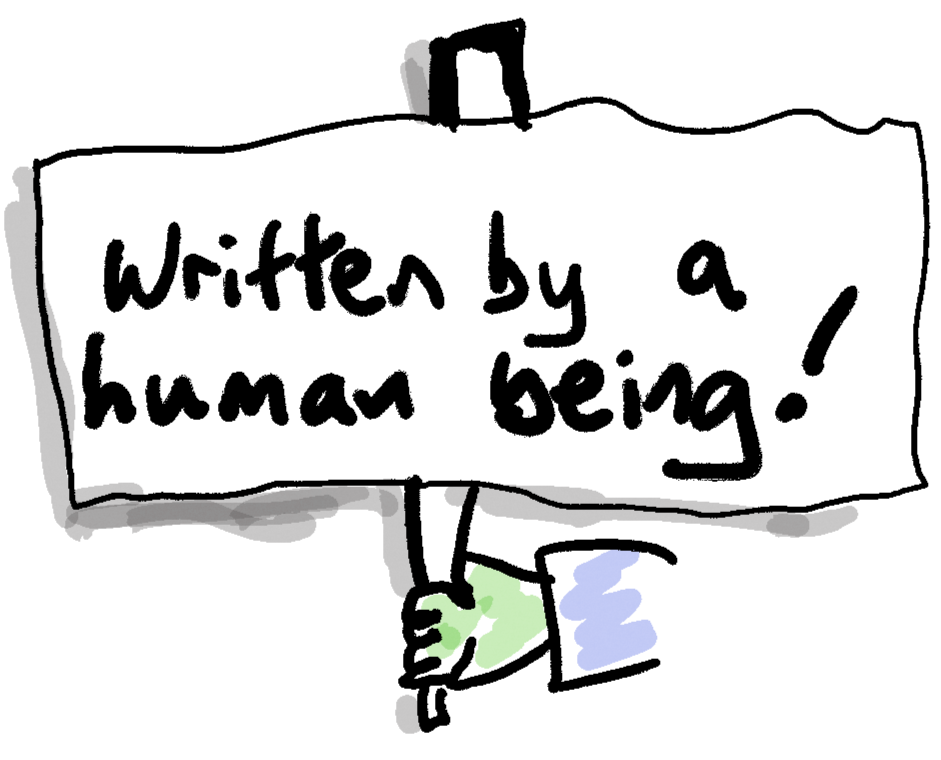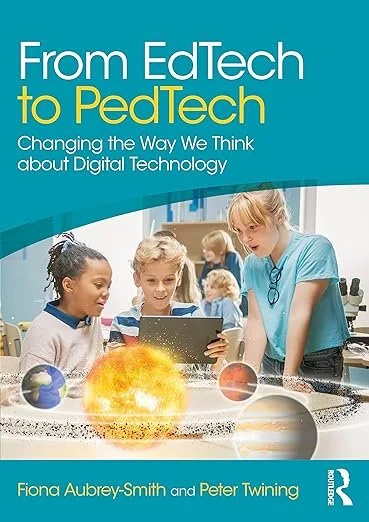From edtech to pedtech (Amazon affiliate link) sets out to bridge the gap between knowing what works in terms of education technology and knowing how to make it work in the classroom. A worthy aim, although by definition it assumes that the ultimate audience, by which I mean the headteacher, knows what works in the first place.
Those of us who have held responsibility for embedding digital technology across a school will all have tales of well-meaning management who, frankly, didn’t have a clue. I’m thinking in particular of headteachers passing decrees that when they perambulate around the school they expect to see every classroom with its computers, laptops or interactive whiteboards on, as if learning gains depended merely on screens being powered up.
Aubrey-Smith and Twining rightly point to the possible mismatch between a teacher’s ostensible view of edtech pedagogy and their actual view. A good example of this was a sort of ‘spot the difference’ piece which appeared when interactive whiteboards were flavour of the year. A photograph on the left showed a 1950s teacher at a blackboard, while the right-hand picture featured a 21st century teacher at a whiteboard. The underlying pedagogy in each case was the same, and no amount of controlling the device from the back of the room rather than the front would be sufficient to convince students otherwise.
This is an important matter to point out, or at least to be aware of. A teacher in a school I worked in demanded that I remove all the computers from a computer room and put them on the students’ desks so that he could have the lesson’s worksheet displayed on each monitor. It was relatively easy to convince him that distributing paper copies of the worksheet would be less onerous while no less efficacious.
This is probably all very obvious, but one thing I wasn’t aware of (at least consciously) is that teachers in different subjects tend to have different views and beliefs about what is effective pedagogy. I wonder if this is one of the reasons that almost every attempt to embed the old ICT (and English and Maths come to think of it) across the curriculum failed.
“The book has several strengths, not the least the breadth and depth of research”
As far as education technology is concerned, the key take-away is that teachers tend to use technology in a way that aligns with their pedagogical beliefs. If, like the teacher I mentioned, you believe that your job is to impart a body of knowledge without undue contributions from students, no amount of technology will change what actually goes on in the classroom or the learning outcomes.
The book has several strengths, not the least of which is the breadth and depth of research, although I was surprised that the pioneering research carried out by Gobbo and Giradi over twenty years ago does not appear in the references. The book does mention the Hawthorne effect, and refers to ecological validity (though not by name), yet fails to mention the well-documented experimenter effect.
Nevertheless, there is plenty here to be getting on with. The summaries of different kinds of research, research terminology and pedagogical beliefs are excellent, and I was pleasantly surprised to discover that the ‘personas’ were easily relatable to because often with this device the results are completely unconvincing.
I found the capitalisation of terms faintly irritating. When words and phrases such as ‘opportunities’ and ‘pedagogical beliefs’ are presented as ‘Opportunities’ and ‘Pedagogical Beliefs’ the effect is rather like reading something from the sixteenth century.
Still, as a set of tools (including downloadable templates) to help reveal to teachers what their underlying pedagogical beliefs are, the book is first-class. The suggestions and tools for team activities are very good and would make for excellent departmental meetings.
Far less attention is paid to whole-school policy but, as the authors say, they are not there to advise the senior leadership team. For teachers and middle leaders who are able and willing to invest the time, this volume should certainly help them build their edtech use from first principles – if they’re given the space.
This review first appeared in SchoolsWeek.
Over on my Eclecticism newsletter I’m looking at how Hamlet might have been presented by Luke Rhinehart, author of the Dice Man. Here’s how it begins:
As you may know, Luke Rhinehart’s Dice Man makes all his decisions on the basis of a throw of the dice. Imagine if Hamlet was the Dice Man…
If it comes up as 1, I’ll bump off my uncle.
If it comes up as 2,





